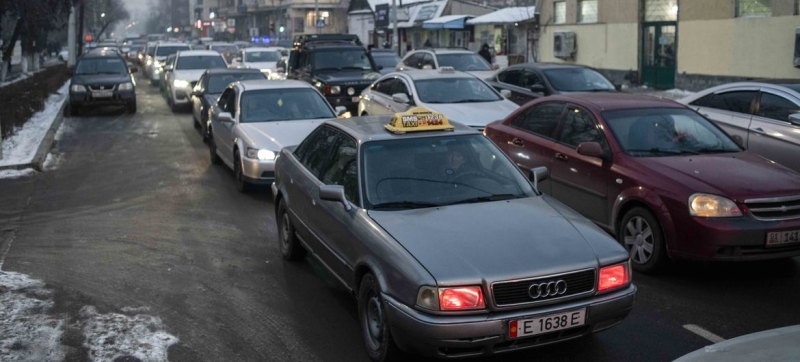
Traffic jams in the center of Bishkek. Kyrgyzstan steps up efforts to combat transport air pollution Climate and environment
Air pollution remains one of the most pressing environmental and health problems in Kyrgyzstan. In the capital, Bishkek, levels of fine particulate matter (PM2.5) regularly exceed standards set by the World Health Organization.
In this regard, on October 21, the Second National Multilateral Dialogue on Air Quality was held in Bishkek. The attention of more than 100 participants from all over the country – experts, representatives of government, local authorities, civil society, international organizations and other institutions – was focused on the problem of transport emissions.
Risks and factors of pollution
PM2.5 (particles with a diameter of less than 2.5 micrometers) in the air contains substances such as sulfates, nitrates and black carbon, which penetrate deep into the lungs and cardiovascular system. Exposure to air pollution is associated with an increased risk of respiratory and cardiovascular disease, especially among children, older adults, and those with chronic illnesses.
Read also:
Air pollution leads to millions of premature deaths every year
If the main source of pollution in Bishkek in winter is related to heating, then, according to the World Bank and the United Nations Environment Program (UNEP), during the warm season, a significant share falls on the transport sector. Compounding factors include an aging vehicle fleet, poor fuel quality, poor traffic management, and limited alternatives to personal transportation.
Recommendations and Next Steps
Opening the event, Minister of Natural Resources, Ecology and Technical Supervision Meder Mashiev emphasized that air quality is not only an environmental, but also an economic, social and humanitarian priority. During the dialogue, practical recommendations were developed to accelerate actions in the fight against transport air pollution, which will become part of the national plan for 2026–2027. season and emphasized the importance of ensuring sustainable measures to improve air quality throughout the year, as well as expanding efforts beyond Bishkek to all cities of the country, especially in the transport sector. She emphasized that the UN system, together with Member States, the Asian Development Bank and the World Bank, continues to support the government’s efforts. infrastructure will provide cleaner air, as well as immediate benefits for human health and the climate. She also confirmed that UNEP will continue to work closely with other UN agencies, government and development partners to promote science-based and data-driven solutions to combat air pollution in Bishkek and across the country.
